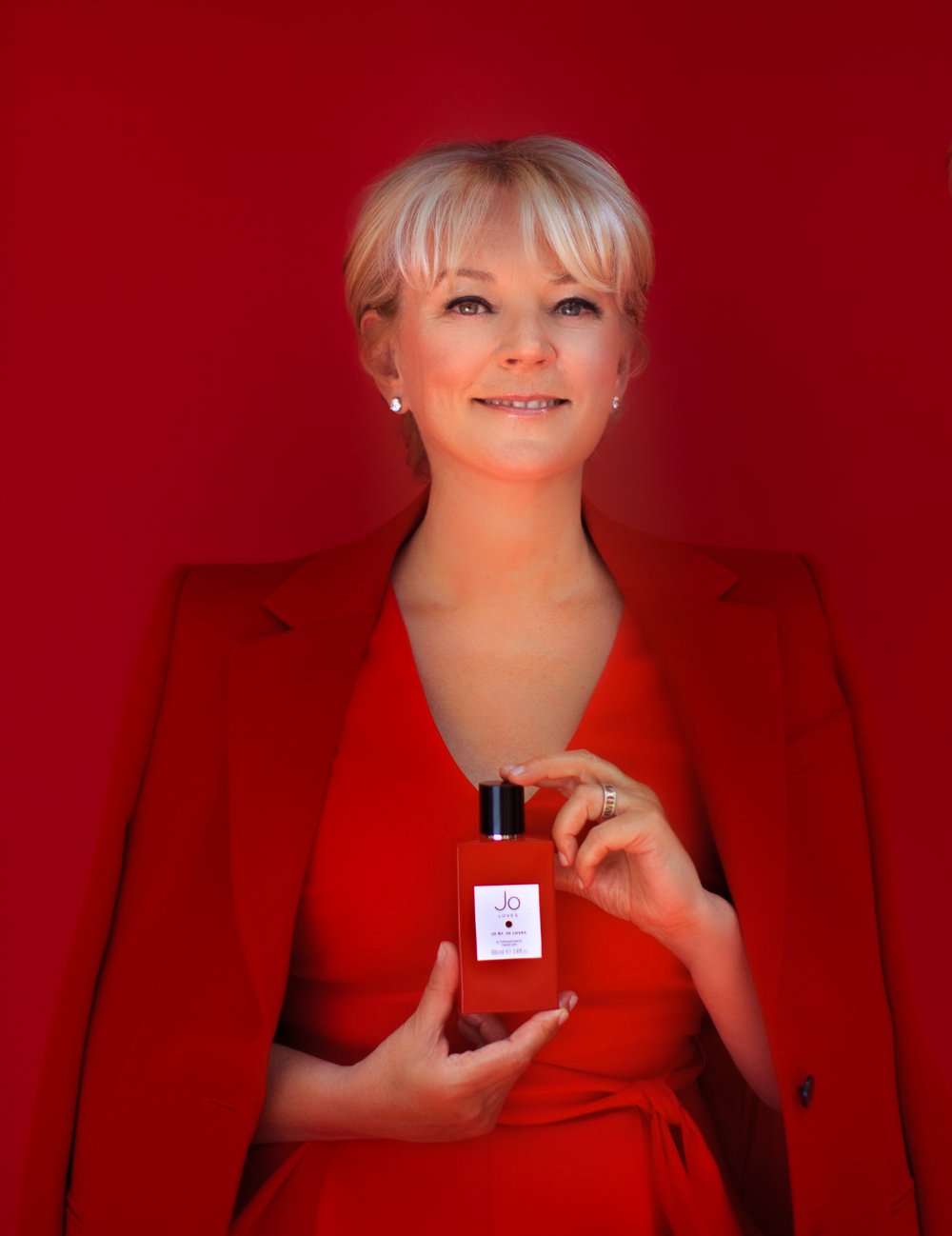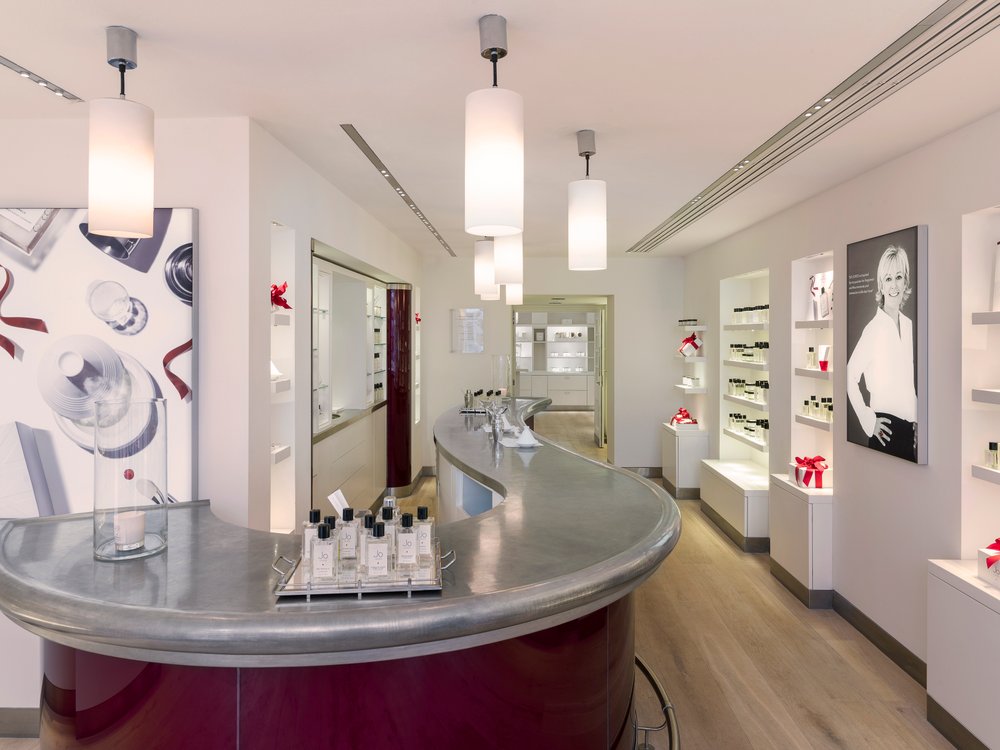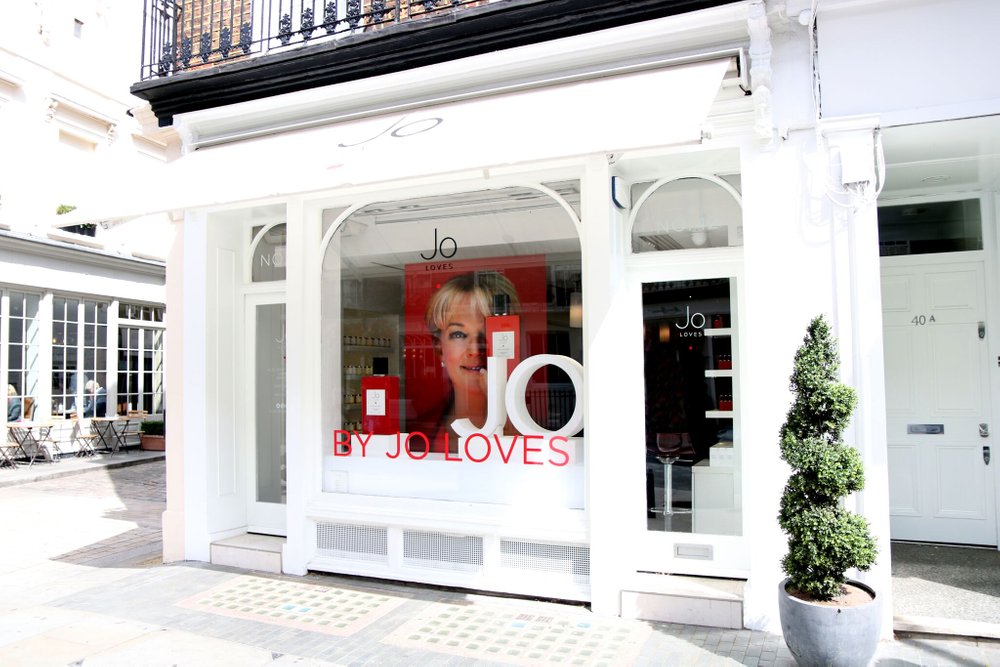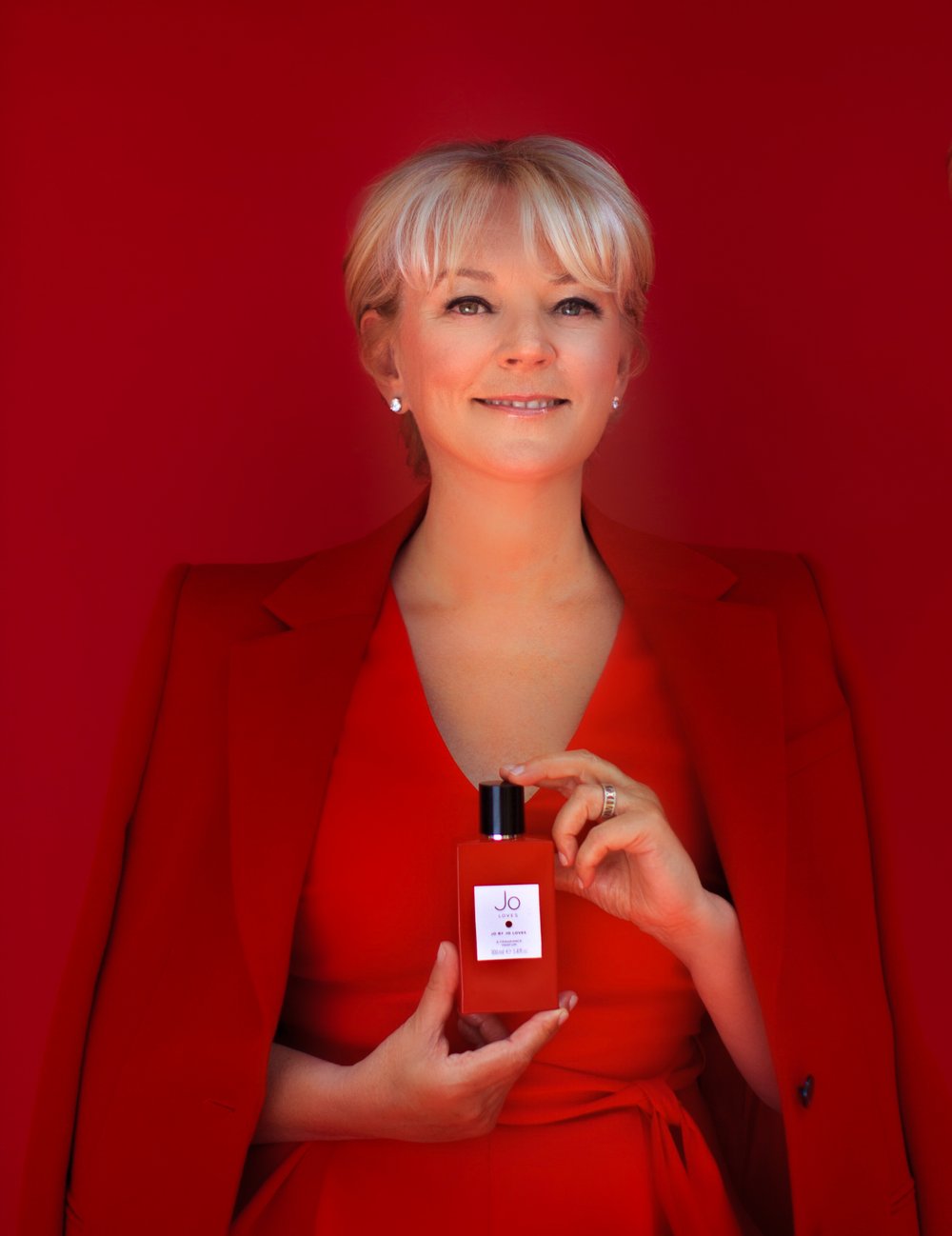The story of Jo Malone serves as a testament that entrepreneurial spirit never fades.
Jo Malone, founder, Jo Loves.
13 min read
Opinions expressed by Entrepreneur contributors are their own.
You’re reading Entrepreneur Middle East, an international franchise of Entrepreneur Media.
The story of Jo Malone serves as a testament that entrepreneurial spirit never fades. In 1983, the then 21-year-old Malone started up her fragrance and scented candle business Jo Malone London from her kitchen, opened her first store in London in 1994, and five years later, sold the company to Estée Lauder Companies for an undisclosed amount, remaining its Creative Director until leaving the enterprise in 2006. Then, owing to a non-compete agreement signed with Estée Lauder, Malone was prevented from launching a new fragrance or skincare brand for five years.
For others, being internationally praised as a self-made entrepreneur might have been enough, but what happened after those five years was one more detail that set Malone apart from her peers. “When it came towards the end of that period, I realized that the desire to create fragrance was just too powerful for me,” Malone remembers. “And so, I decided to try one more time, and see if I could build it again.” And that’s how the Jo Loves brand came to be, Malone’s new scent, bath, body and candle collection, which she launched in 2011.

Jo Malone, Founder, Jo Loves.
Source: Jo Loves
I spoke with Malone at The Retail Summit held in February in Dubai, and when we meet at the lobby of The Atlantis Dubai, I can see that she is relaxed around journalists, and generous with warmth and empathy, while also answering all my questions with complete honesty, which, for her, I notice, hardly needs to be a conscious effort. And thus, she opens up that starting a business for the second time around was probably one of the hardest things she had ever done.
“For the first two years, I regretted that decision every single day of my life,” she says. “It was hard, because no one knew that I had left [Jo Malone London], and I had the responsibility to the Lauder family, and to the consumer, and also to myself. Sometimes, regardless of what you most want in life, you have to be respectful of the people around you. Relationships are a golden ticket in life. On the other side, if I hadn’t done it, I would have denied myself as a person. I would have denied that one thing that had motivated me, and had made me happy. So, I really had to think differently.”
In 2011, when launching Jo Loves, Malone was stepping into a changed business environment; however, she also knew that certain preconditions for a successful brand wouldn’t have changed. “The market was different, especially in the way how we communicated, but the consumer still wants to be inspired by brands with which they can identify,” she notes. “That is a constant which will continue a hundred years from now. The consumer is not just buying your product, they are buying into a story that you have created, and they want to connect with you. It is really a privileged position to own a business, because the consumer is choosing to come into your four walls, regardless of whether it is online or bricks-and-mortar. That has not changed.”
Related: Why Retail Businesses Need A Brick And Mortar Presence (Even In The E-Commerce Era)

The JoLoves bespoke store in London
Source: Jo Loves
Jo Loves’ product line-up currently includes 13 fragrances, priced GBP70 for 50ml fragrances and GBP115 for 100ml. The brand also features candles in eight different fragrances, with costs ranging from GBP55 to GBP350 for luxury candles, and it offers bespoke fragrances as part of its signature Candle Shot experience. The company is 100% owned by Malone and her husband Gary Willcox, who takes care of the company’s operations and business development, thereby allowing Malone to focus on creativity and product development.
However, Malone points out that the process of building a team capable of following her vision has not been without setbacks. “In fact, I’ve made a lot of mistakes in building the team, and the second time, I have made more mistakes than the first,” she says. “I now employ more women than men, and I’m happy with my core team, but to take the business globally, you need [more than that]. A general manager who is in place at the moment is actually following my dream and my vision, instead of her own. She is a great leader. But I’ve had a few who wanted to take the business, and run it in the direction that they thought was right, and that was not what I wanted. So, I’ve learnt from both sides.”
Related: Starting Up A Business? Avoid These Common Mistakes Of First-Time Entrepreneurs
In her frank style, Malone continues to talk energetically about her quite innovative approach to conveying the brand message to the consumer, for which she had to build a team capable of executing it. “Creativity is the only currency that never devalues,” she declares. “I think and create all the time; for me, that is the most natural thing in the world, and for me, it’s very easy, but the difficult part is passing it down onto the team. We are a brand about stories. With each fragrance and each candle, I’m telling you stories about my life, about how I see a glass of rosé wine, or about how I hear jazz music. The difficulty is how you can take those authentic stories, without them just being written down, but instead, you bring them alive. So, when we were recruiting, I went to the theatre industry, and I found people who used to be on stage. They can perform, dance, sing, and tell great stories. So, people working in my shops have not come from the retail industry at all.”
Related: Emirati Spoken Word Artist Afra Atiq On Having An Entrepreneurial Drive As An Artist
One example is Adam Ellis, the Head of Education and Customer Experience at Jo Loves, whose background in theatre productions has been instrumental in the success of Jo Loves Fragrance Brasserie Bar, a bespoke experience that allows Jo Loves customers to select their desired fragrances and create a personal plate of scented tapas. “That one little tapas bar creates the most amazing storytelling and emotional connection to the brand. We call it ‘the first kiss,’ meaning when you kiss the consumer for the first time with a brand, it opens up our world for them. It converts 98% of the time into sales. We don’t charge for it, it’s just something we engage with as a very different way of approaching retail.”
In 2008, Malone was awarded an MBE in the Queen’s birthday honors list for promoting British creativity and industry on the international stage. A decade later, she was awarded Commander of the Most Excellent Order of the British Empire (CBE) by the Prince of Wales for her contributions to the fragrance industry. Speaking of receiving a CBE from the Queen, Malone says, “I remember walking through the gates, thinking, ‘How did I get here?’ I think that it keeps your feet on the ground, it keeps you humble. I don’t ever want to presume that this is my right. I’ve worked hard in my life, and I always try to make my world much better and happier for those around me. But there are moments when I realize that I’m sitting there, not only because I’ve worked hard, but also because my voice is important. My voice is important, not just for myself and my business, but because people trust me when I say something, and I never take that for granted. I feel that is a responsibility that is becoming more and more apparent in my life, which is to speak for those who don’t have a voice.”

The JoLoves bespoke store in London
Source: Jo Loves
And Malone knows very well about the struggle of making one’s voice heard and acknowledged. Dyslexia hampered her success in school which she left at the age of 15, and started working as a florist, interestingly at the very same place where situated today is Jo Loves’ bespoke store in London’s Belgravia neighborhood. A year later, her mother suffered a stroke, and the then 16-year-old Malone had to quit her job to look after her. It led to her working as a facialist and making her own bath-oils to send to her clients as gifts, out of which her first fragrances were born. When asked about the biggest hurdles she encountered in both life and business, she replies, “My lack of education would be the first one. When I left school at 15, I was told that I would never make anything out of my life. That teacher apologized many years later, after she had read my article in The Telegraph. I think that my lack of education has actually motivated me. I’m not saying that it is a way forward, certainly not something I’d want for my son, but don’t be frightened. Not all entrepreneurs are academics. They think with a different head, and if you are entrepreneurial, sometimes your lack of education pushes you into a different mindset. Similarly, my dyslexia is not a disability, but an ability to think differently, and if this world needs anything at this moment, it is people who think differently. Dyslexics find solutions quicker than most people, and they would go a different route.”
The period after the sale of Jo Malone London to Estée Lauder Companies was characterized by the birth of her son, but also by her fight against breast cancer about which she says, “Fighting cancer at 38 was definitely a challenge, but I reacted to cancer in the same way I run my business. I found the best person who I believed could save my life. I trusted him. Similarly, I find the best people that I can, and I say to them, ‘I can’t do what you can do, but I’m going to support you.’ So, I allowed the chemotherapy to do its work, and there were many dark days within that year, but I came through it as a much stronger person. Now, I think, telling my story and allowing people to see the things that didn’t go right and the times that were tough makes us all stronger, although we sometimes think it makes us weaker. It makes us stronger, because if you come through that, you have arms full of hope in your hands, which you can pass onto somebody for them to think, ‘If she’s gone through that, she did that, I can as well.’ For me, that’s an important thing.”
This statement corresponds to what was happening during our meeting at The Atlantis Dubai- our interview was often interrupted by people approaching Malone to express how touched and inspired they were with her story, a man sitting quietly in a corner behind us was nodding intently as she was answering my questions, and all of this was because they found spending time with Malone quite uplifting- just as I did.
“Success doesn’t make you richer, smarter, prettier, or happier, it just gives you a choice,” she says. “That’s all that it does. Sometimes people strive for success, and they miss the journey. Success is about today, right now, every moment; so, at the end of each day, I think to myself about what did I do that took me one step ahead. On some days, I’ll run a thousand steps ahead, and on some days, it’ll be just one step, or I’ll stand still- but I never want to go back in life. For me, success is one step, and even if it’s only one step towards my goal and my dream that I’ve made, it’s been a successful day. It’s a good mindsets because it makes me productive, and it doesn’t make me bitter. Sometimes, if you can’t grasp hold of success, you can get frustrated, instead of creative. That’s the flip side of me, and I have to watch myself on that.”
Malone applies this sort of awareness to her business as well. “As fragrance houses, we are looking at predicting what the future will bring, but there is a lot of responsibility with this, because sustainability is coming into that, meaning that if we take raw ingredients from certain parts of the world, how can we give back to those communities and support them?” she says. “It is not just about buying something, but about what you give back, and what is a longer-term goal. It is important to me what the fragrance houses that I work with give back to the next generation.” And Malone’s next goal has the potential to lift her on to a path that will garner her new respect, which she undoubtedly deserves.
“One of the biggest things that I think about at the moment is the responsibility for the next generation, and I want to see entrepreneurialism taught to any child across our country, and then hopefully across the world,” Malone says. “I want that generation to believe that there is an army of entrepreneurs here to help them, that they are not on their own.
Related: Eight Entrepreneurial Skills You Should Teach Your Kids

